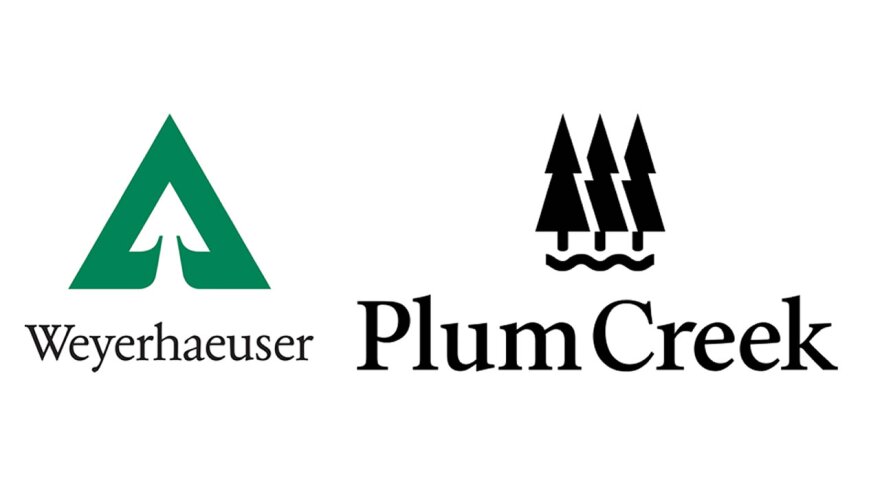Weyerhaeuser is buying Plum Creek Timber for over $8 billion. Montana Wood Products Association Executive Vice President, Julia Altemus suspects the merger agreement will have little impact on Montana’s remaining wood products industry, including Plum Creek’s medium density fiberboard plant in Columbia Falls.
"I think it’ll probably be business as usual. Plum Creek supplies the products that they do that aren’t necessarily in competition with what Weyerhaeuser does, so it’s a nice fit. I don’t see that they’ll be any changes to the operation but there are a lot of unknowns at this point so, I don’t even know that I could speculate.”
The proposed merger was announced on Sunday and took many industry-insiders like Jon Anderson by surprise. Anderson, the president and publisher of the Oregon-based wood products industry journal “Random Lengths” describes the development as a “big deal.”
"Yeah, I’m sure some people’s eyebrows were raised in the industry…it caught us by surprise.”
If the proposal is ultimately approved by stockholders, the company would retain the Weyerhaeuser name and have over 13 million acres of timberland in its portfolio. That would make it the largest private owner of timberland in the United States.
Anderson says he has no idea what prompted Weyerhaeuser’s proposed buyout of Plum Creek, but offers this outline of existing market conditions:
"Demand for timber has come back some, but in terms of pre-recession levels, even before the housing boom and bubble, we’re not even close to where the norm was say in the year 2000 or 2002 or 2003.”
What’s more, he notes the once-burgeoning Chinese demand for lumber has flattened and even declined over the past year or two.
The Montana Wood Products Association’s Julia Altemus suspects Weyerhaeuser and Plum Creek are playing the long game.
"A lot of the products that they make are finished products for homes. I think they’re looking toward the improvement of the home-building industry and home starts in general. That will help them and market share will grow.”
Matthew Koehler predicts the move will hurt Montana’s timber industry. Koehler is executive director of the Wild West Institute, a Missoula-based environmental organization. He thinks corporate mergers like the one announced this past weekend are designed to reduce competition within the industry.
"Driving out the smaller timber mills and operators and also greatly reduce the tax burden that these corporations pay, which essentially shifts the tax burden to the general taxpaying public, while the shareholders of these corporations get more money.”
Koehler says he believes this merger announcement and global economic realities fly in the face of those calling for ever-increasing timber harvests quotas. He says these realities affect far more than the timber industry.
"We see it happening right now with the coal industry, the oil and gas industry, Keystone XL. There are tremendous economic forces at play here and simply offering up more national forest timber in this market and with these economic realities, these forces are much, much greater than anything we can do at the local level."
The proposed Weyerhaeuser/Plum Creek transaction requires approval of shareholders of both companies. A final decision may not come until early to mid 2016.


